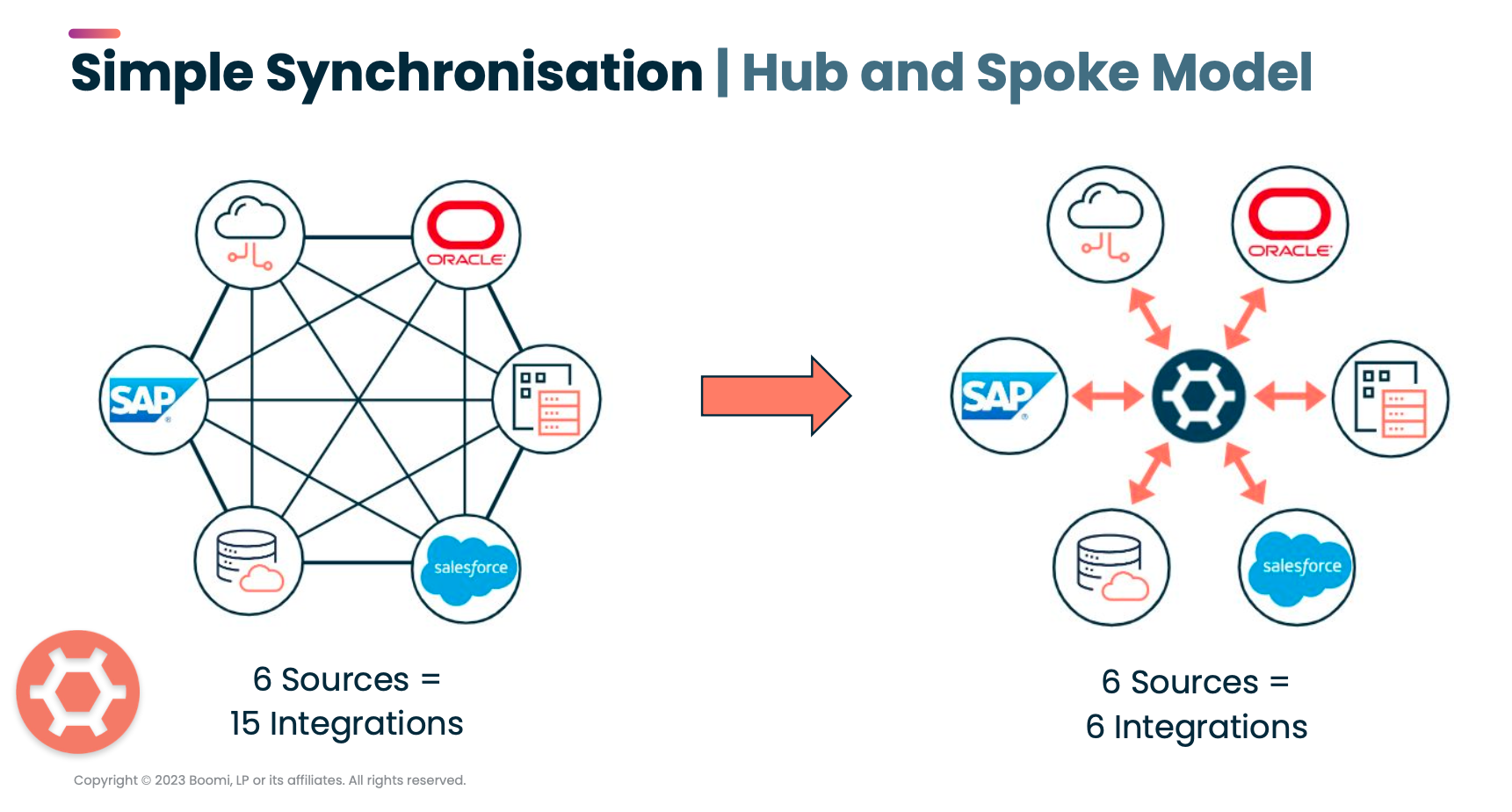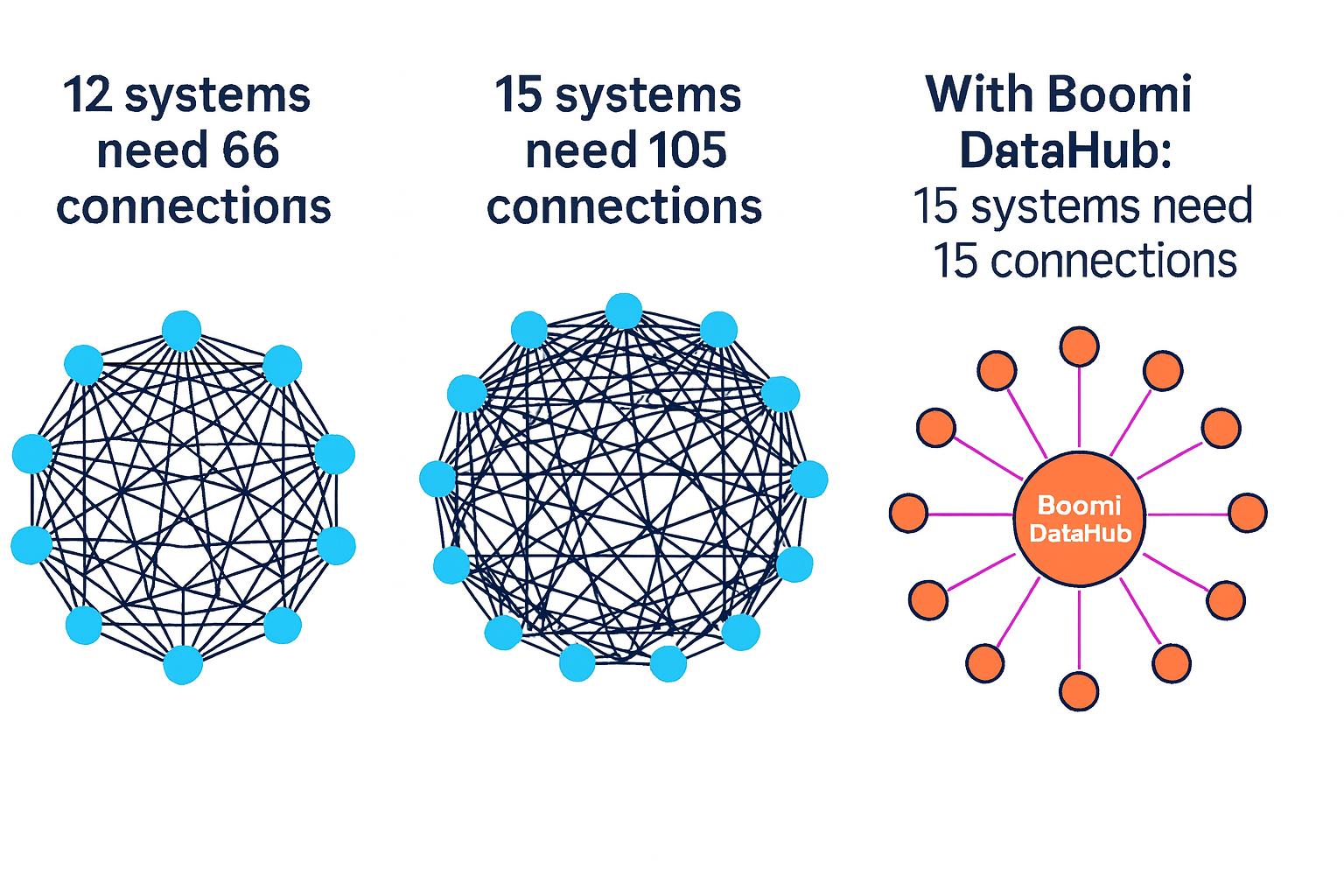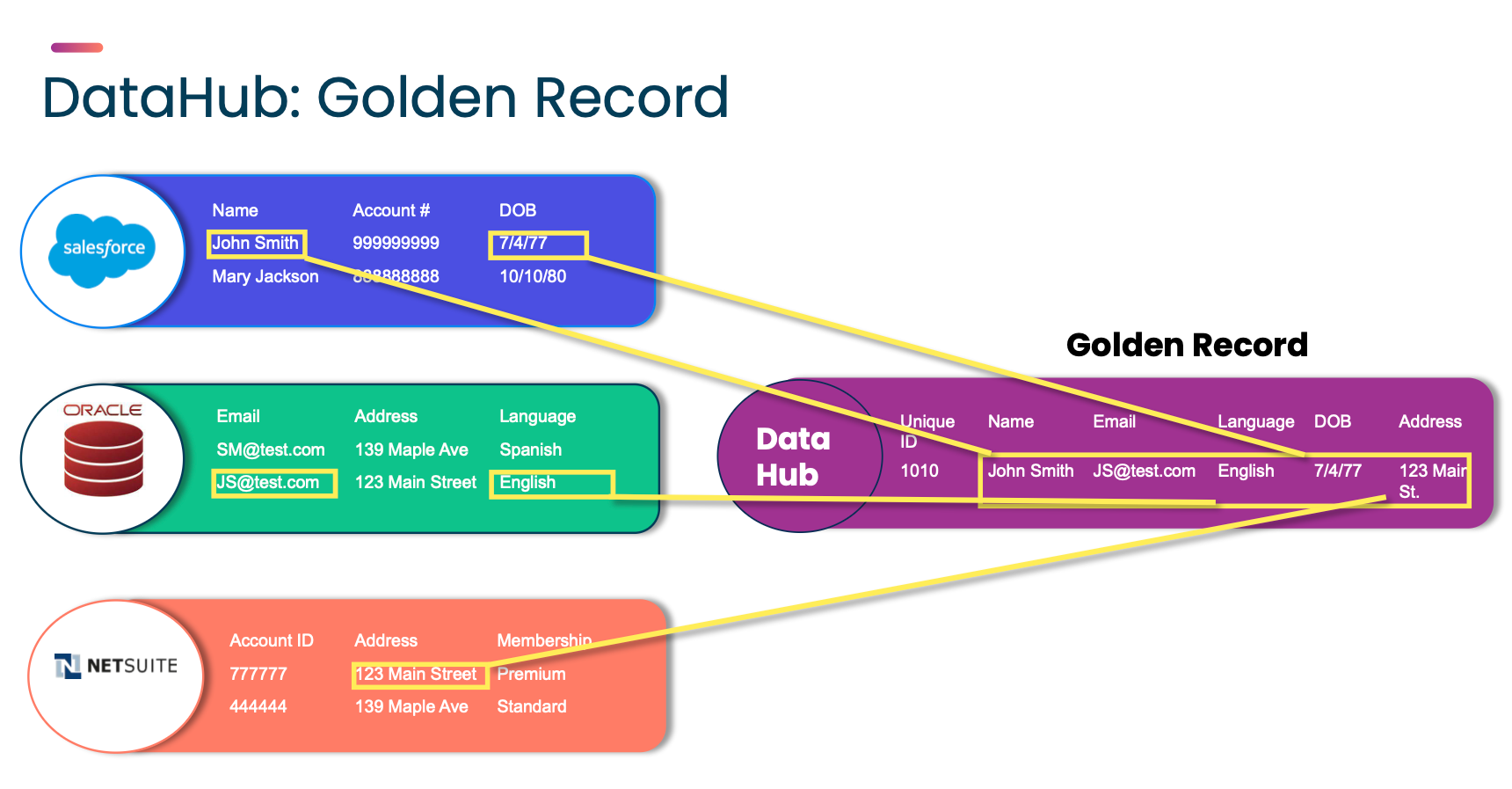From Integration & Automation to Data Management
In our previous article, we explored how Boomi Integration & Automation helps companies connect systems, eliminate repetitive manual work, and speed up business processes – backed by a real-world example where a client saved over 34,000 hours annually.
Now, we’re moving to the next major capability of the Boomi platform – Boomi Data Management. With Boomi Data Management, you get a centralised data management platform that acts as the single source of truth.
While Integration & Automation focuses on how systems exchange information, Data Management focuses on what information they exchange – ensuring it is accurate, consistent, and trusted across the entire organization.
Why Boomi Data Management Matters
Many companies have plenty of data, but few use it well. How effectively is your organization turning data into growth?
Clients we work with often struggle to find, access, or clean their data, making it more of a burden than an asset.
Strengthening master data management is a simple yet powerful way to boost performance and prepare for future growth.This is why an enterprise data management platform is essential.
For example, types of master data include:
- Client data
- Product
- Supplier
- Financial
- Employee
- Asset
83% of organizations consider client and product data to be the most dominant domains, as these are core to revenue generation. Client data is critical for B2B businesses to tailor client strategies and communications to optimise marketing and sales effectiveness. Likewise, product data is used across supply chain, sales and R&D, underpinning both business productivity and growth.
Boomi Data Management solves these challenges by:
- Creating a centralized, authoritative repository for master data (Employees, Customer Accounts, Products, etc.).
- Defining clear ownership of each attribute and how it’s enriched.
- Synchronizing changes across all consuming systems in near real-time.
- Reducing connector calls, execution time, and licensing costs.

In short, it’s about trusting your data – everywhere it’s used.
Success Story: Global Manufacturing Leader
Background
Our client is a global leader in manufacturing, operating in 25+ countries with multiple legal entities and an extensive, complex application landscape.
As the business grew, the lack of centralized master data governance became a major blocker for efficiency – especially in HR, procurement, compliance, and supply chain operations.
Use Case 1: Employee Records Synchronization
Challenges
- Employee data mainly stored in Workday and SAP SuccessFactors but required in 15 downstream systems.
- Access management handled separately in Microsoft Entra, with no automated sync.
- Heavy reliance on manual spreadsheets, emails, and uploads – creating delays and data inconsistencies.
Annual Impact (Before Automation)
- 72 employee records updated monthly
- 3.6 minutes per record × 15 systems
- → 778 hours/year lost to manual data updates
Solution
- Defined Workday as the source of truth for employee records, Microsoft Entra for Access Groups.
- Built Boomi DataHub models to store only essential, non-sensitive data.
- Automated all downstream syncs, eliminating repeated API calls and reducing licensing costs.

Results
- Reduced manual effort to near zero.
- Improved data quality and process speed.
- Cut ~30 connector calls per record per integration run.
Use Case 2: Customer Accounts Synchronization
Challenges
- 48,000 Customer Account records spread across 7 systems.
- No single source of truth – duplicates and inconsistencies were common.
- Manual entry processes consuming large amounts of time.
Annual Impact (Before Automation)
- 48,000 records × 2.4 updates/year
- 2 minutes per record × 7 systems
- → 26,880 hours/year wasted on manual updates
Solution
- Created centralized Customer Account DataHub containing only essential fields and system references.
- Defined attribute ownership rules and automated sync to all consuming systems.
- Reduced connector calls per account by 10 per integration run.

Results
- Improved data accuracy and eliminated duplicate entries.
- Significantly reduced execution time and licensing costs.
The Combined Impact
Before Boomi Data Management
- 27,658 hours/year lost to manual updates
- 3,457 man-days – equivalent to 16+ full-time employees working all year on repetitive tasks
After Boomi Data Management
- Centralized master data management
- Near-zero manual entry
- Lower costs through optimized API usage and faster syncs
💡 Why This Matters for Your Business
When repetitive, manual tasks are eating up thousands of hours each year, the cost is real – in money, time, and lost opportunity. By centralizing and automating your master data, those hours can be reclaimed and redirected toward activities that actually grow your business.
Imagine turning the equivalent of 15+ full-time employees into innovation, analytics, or customer-focused initiatives – all without hiring a single person.
And the best part? Implementation costs are just a fraction of the savings – thanks to Boomi’s no-code platform, which enables delivery in weeks, not months.
Master Your Data, Master Your Market
The data is already there – what’s missing is organization and trust. When you take control of your master data, you’re not just streamlining internal processes; you’re unlocking insights that let you act faster, make smarter decisions, and seize opportunities in the market. Properly managed data becomes a true business asset instead of a burden.
What About Your Business?
- Do you have multiple systems that don’t talk to each other?
- Are data updates slow, error-prone, or heavily manual?
- Could your teams focus on higher-value work if repetitive tasks were automated?
We can help you master your data, free up resources, and turn your information into real business advantage.
📩 Contact us to see how Boomi Data Management can deliver the same results for you or reach out at sales@getbgd.com.